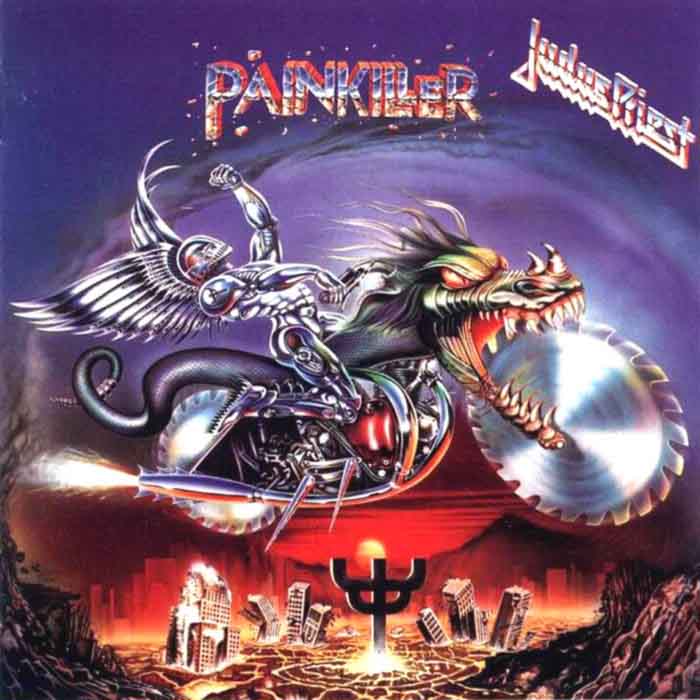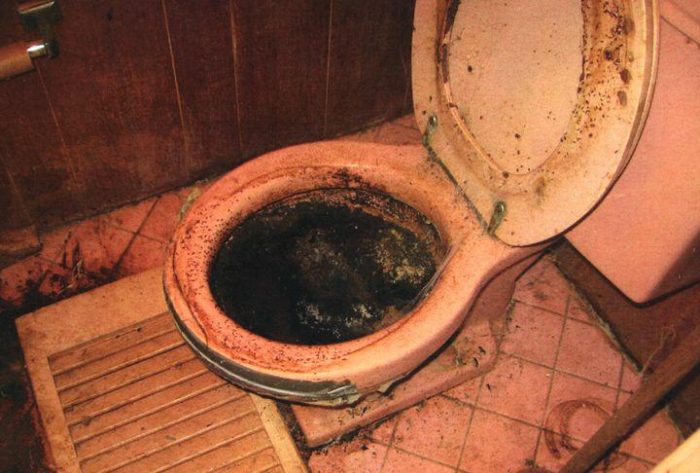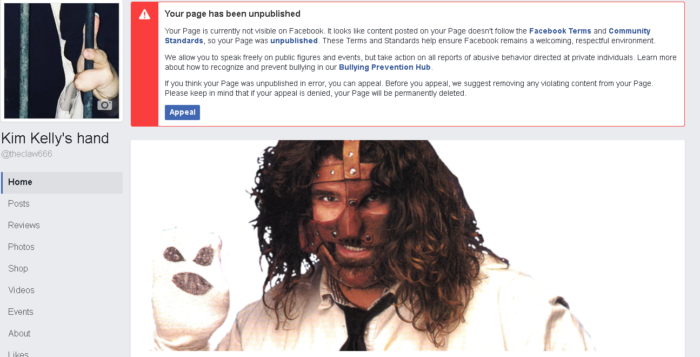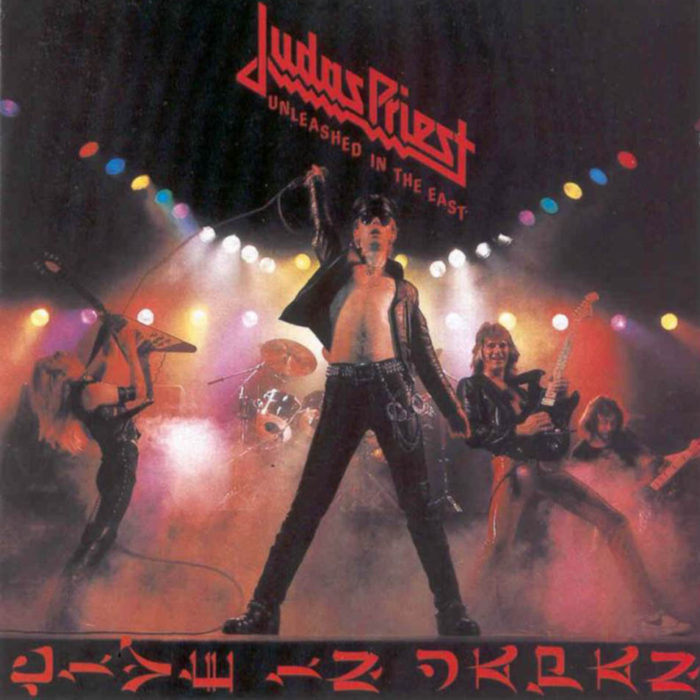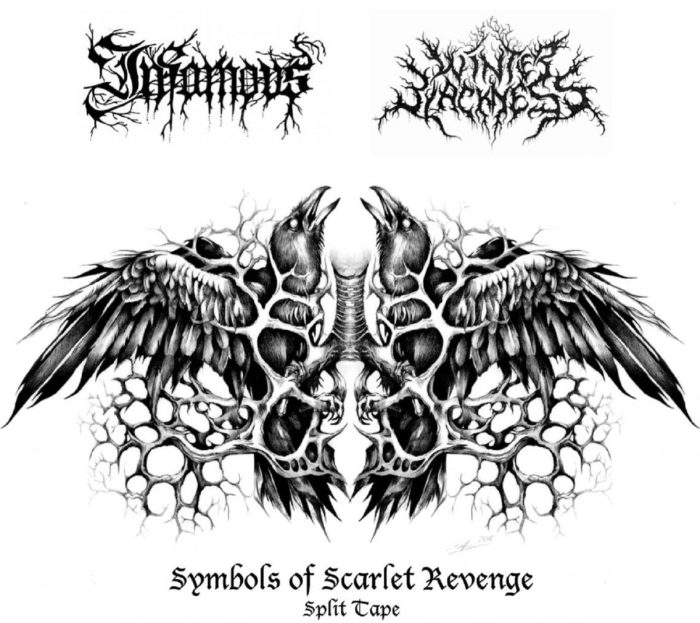
Infamous have delivered us yet another split with a weaker but by no means incompetent band. Winter Darkness provide the almost filler this time on Symbols of Scarlet Revenge, playing somewhat generic, riff salad black metal that doesn’t really go anywhere special on this split has promise if they could unite the various parts together in order to express something greater than merely “We actually play black metal, we wrote riffs, they’re not random, and our music is not that so bad that it will make the Death Metal Underground editor press a power drill into his skull.”1 In their defense, Winter Blackness use RAC-like drumming, and songs that conserve sneering tension that sometimes resolves on “Demons of Winter Blackness” and leaves you wishing the band would explode on “Frozen Nocturnal Blood”. A slow burning match that burns out into darkness rather than lighting a fire is not the best way to conclude a record. At least Winter Darkness are way more aggressive than Gratzug’s half of the Infamous / Gratzug split.
(more…)
6 CommentsTags: Black Metal, compact cassette, eremita produzioni, infamous, Italy, necropole, nsbm, rac/oi, review, split, symbols of scarlet revenge, winter blackness

